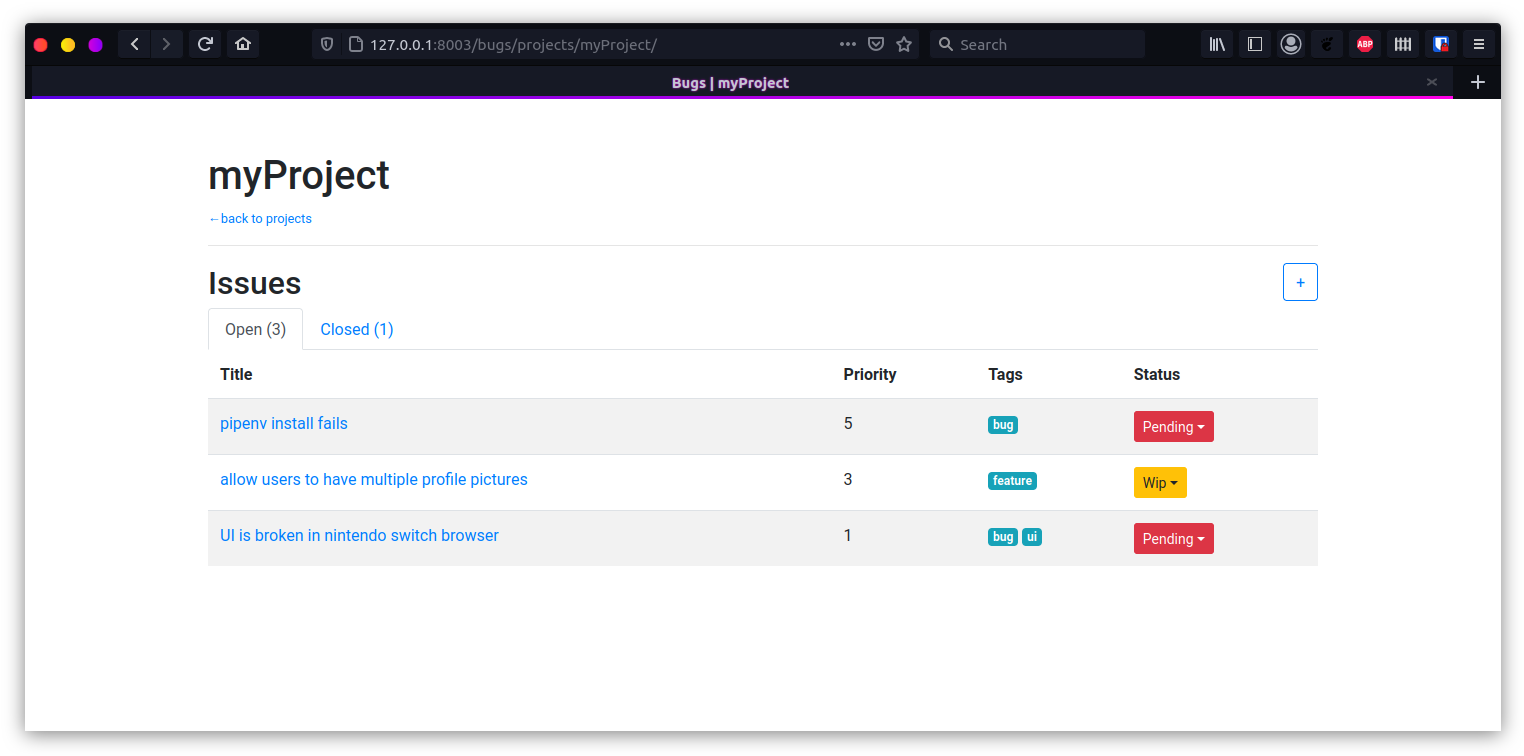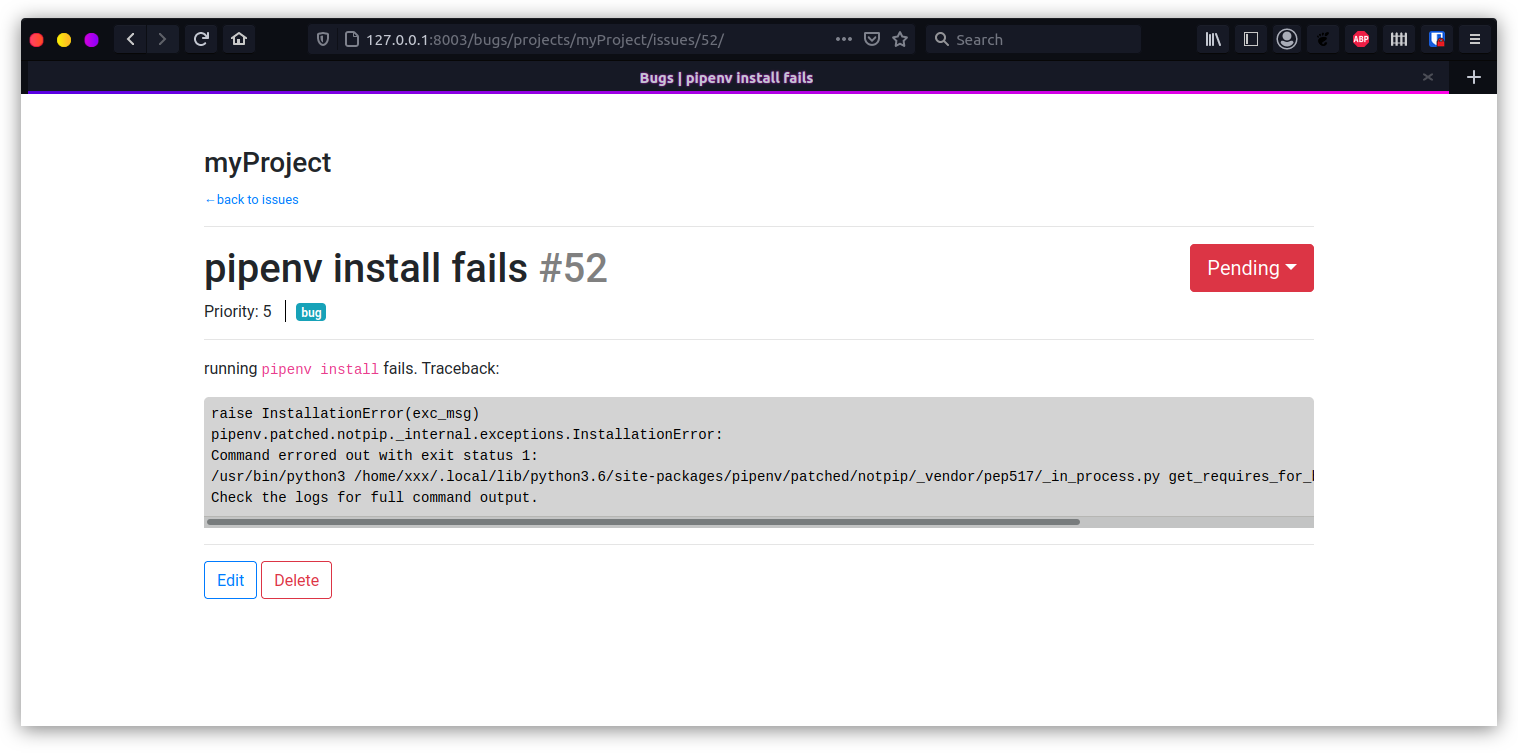A dead simple local issuetracker for your sideprojects.
Features
- create projects
- create issues for projects
- format the description of the issue with markdown
- mark issues as pending, WIP (work in progress), done or wontfix
- assign priority to issues
- assign tags to issues
- a CLI
- filter issues by tag
Features yet to come
- users (maybemaybe)
$ python bugs_cli.py --help
NAME
bugs_cli.py - Command Line Interface for BugsClient
SYNOPSIS
bugs_cli.py COMMAND
DESCRIPTION
Command Line Interface for BugsClient
COMMANDS
COMMAND is one of the following:
create
create a new project. If no projectname is given, the name of the project will be taken from the environment variable BUGSPROJECT or, if not set, the current directory name.
ls
list issues in project. If no projectname is given, the name of the project will be taken from the environment variable BUGSPROJECT or, if not set, the current directory name.
mark
set the status for an issue. If no projectname is given, the name of the project will be taken from the environment variable BUGSPROJECT or, if not set, the current directory name.
projects
list all projects
show
show details of an issue. If no projectname is given, the name of the project will be taken from the environment variable BUGSPROJECT or, if not set, the current directory name.
Requirements: python3.8, pipenv
git clone https://github.com/davekch/bugs.git
cd bugs
pipenv install
./manage.py migrate
In development, run
export DJANGO_ENVIRONMENT=development
./manage.py runserver <port>
In production, run ./manage.py runserver to create a config file at bugtrack/settings/productionsettings.ini. Edit the section server[allowed] to set the allowed hosts.

